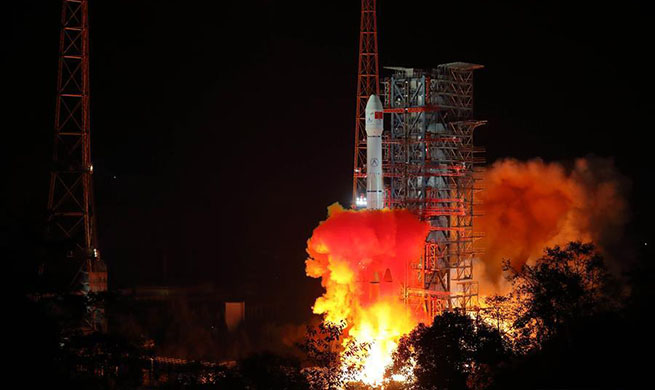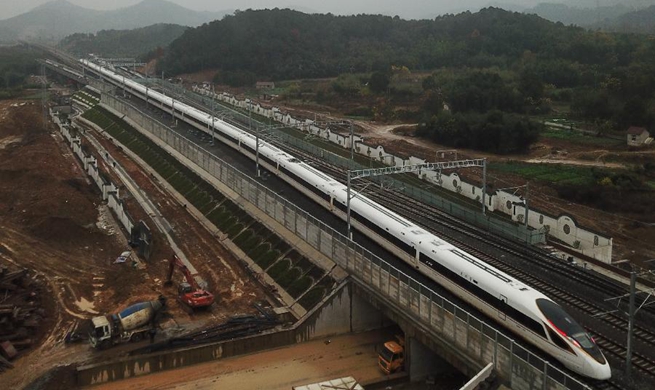SAN FRANCISCO, Dec. 8 (Xinhua) -- U.S. scientists have found that people's privacy is at high risk as there is growing practice of compiling massive, anonymized datasets about their movement patterns, according to the latest study released over the weekend.
The researchers from the Massachusetts Institute of Technology (MIT) made the first study on "matchability" of user mobility by analyzing two large-scale datasets from a mobile network operator and a local transportation system in Singapore.
The mobile data contained timestamps and geographic coordinates in more than 485 million records from over 2 million users, while the transportation data comprised over 70 million records with timestamps for individuals moving through the city.
They found data containing "location stamps" -- information with geographical coordinates and time stamps -- could be used to easily track the mobility trajectories of how people live and work.
Those sensitive data can be obtained from mobile phone records, credit card transactions, public transportation smart cards, social media accounts and other mobile apps, said the MIT study published Friday in IEEE Transactions on Big Data.
"Working with large-scale datasets can allow discovering unprecedented insights about human society and mobility," Daniel Kondor, a researcher in the Future Urban Mobility Group at the Singapore-MIT Alliance for Research and Technology.
In the MIT experiments, the researchers could match about 17 percent of individuals in one week's worth of data, and more than 55 percent of individuals after one month of collected data. The accuracy rate jumped to about 95 percent with data compiled over 11 weeks.
As to how much activity is needed to match most users over one week, the study said the scientists achieved a success rate of 90 with a week of compiled data when they analyzed the customers' 30 to 49 personal transportation records, and around 1,000 mobile records.
The researchers could match 95 percent of individual trajectories with less than one week's data if the datasets were compared to GPS traces regularly collected by smartphones, either actively or passively.
"All data with location stamps is potentially very sensitive... We need to keep thinking about the challenges in processing large-scale data, about individuals, and the right way to provide adequate guarantees to preserve privacy," said the study's co-author Carlo Ratti, a professor at the MIT Department of Urban Studies and Planning.
The researchers hope their study can increase public awareness of protecting their privacy and promote tighter regulations for sharing consumer data by companies, the academic community and other entities.













